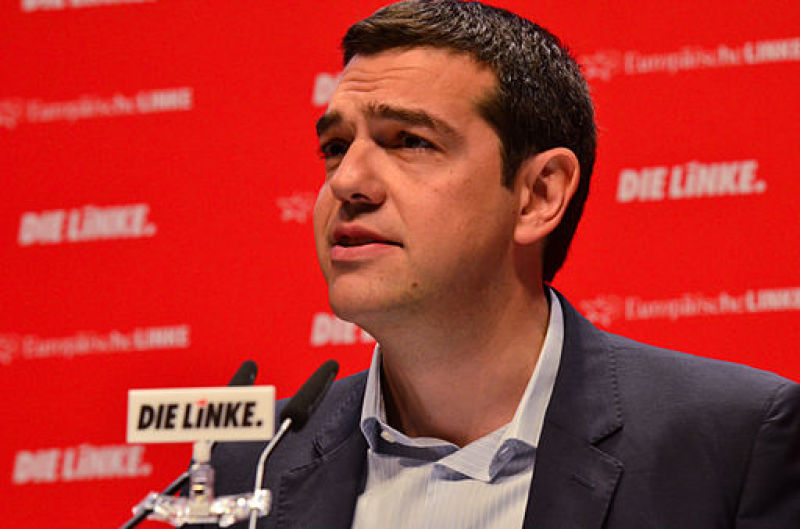

Alexander Tsipras's promises of raising minimum wage and halting austerity was not taken lightly by the European Central Bank.
The European Central Bank flexed its power in light of Greece's recent attempts to ease the debt it owes the ECB.
Greece's newly elected Syriza party is attempting to negotiate the terms of debt as well as receiving support from Europe under new terms. Yanis Varoufakis, the new financial minster, met with the financial minster of Germany earlier this week, as well as the president of the ECB. Varoufakis, a leftist, did not receive sympathy from either individual.
After Alexander Tsipras came into office, the European Central Bank and its members became wary of future efforts by Greece to get a "haircut" on its debt. This week, Germany's financial minister Wolfgang Schaeuble and ECB president Mario Draghi showed stern intent for Greece to fulfill the financial promises made by the former government. None of the countries in the euro zone will allow for debt forgiveness, and all of the countries in the euro zone stated that they expect Greece to honor its commitments made by the former government.
Tsipras made his own promises after coming into office to raise the minimum wage, rehire former government employees, and stop privatization of Greek resources such as ports. His policies are contradictory to the commitments made by Greece's previous government with euro zone members.
Despite a Europe tour by Tsipras, no countries sided with Greece. Other left leaning countries such as France and Italy agreed with the rest of the euro zone that Greece should fulfill its commitments. Despite the apparent lack of success, Tsipras allegedly remains devoted to his own promises.
"Greece won't take orders any more, especially orders through emails," he said to his party members. "Greece cannot be blackmailed because democracy in Europe cannot be blackmailed," said Tsipras in regards to the ECB's tightening grip on the Greece economy.
On Wednesday, the ECB decided to stop accepting Greek bonds in exchange for capital. This decision puts added pressure on the Greek banks to begin using emergency liquidity assistance to keep the country afloat. Further, Tsipras's decision to halt the bailout program, which was keeping the country's economy from collapsing, will leave Greece with little choice but to use the emergency liquidity assistance. A reliance on the assistance would put Greece at the mercy of the ECB, whose council must be notified of the use of the assistance. If the ECB council has a two thirds majority vote to prohibit or cap the assistance, then Greece would have no source of funds.



















